How Florida Atlantic University is making a major difference in health care
The university is leading regional efforts to educate more health care professionals, conduct more game-changing research and improve health outcomes in all the communities it serves.
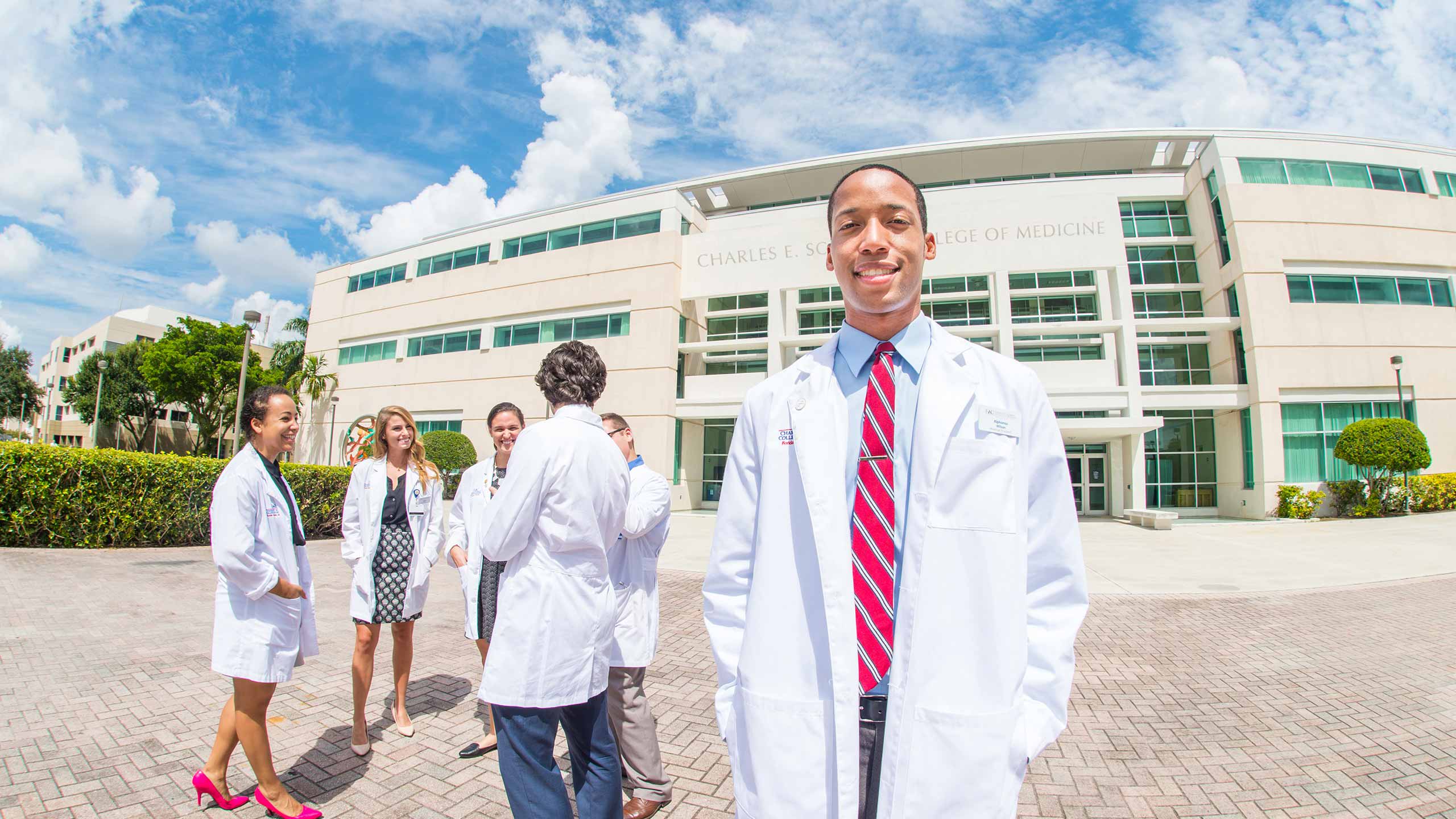
Health care in Florida has reached a critical juncture.
The fastest-growing state in the nation gained more than 400,000 new residents last year alone. But Florida has an aging population that requires more medical care and is facing current and projected shortages of both doctors and nurses. Though the quality of Florida’s health care is generally strong, access is lacking. By one measure, the Sunshine State ranks 41st in the nation in access to health care.
Stepping up to meet this enormous challenge is Florida Atlantic University, a public institution that serves more than 30,000 students at six campuses along the state’s southeastern coast. Florida Atlantic is leading a multipronged regional approach that will address critical health care workforce shortages; prepare doctors, nurses and other graduates for future success in their careers; conduct research that can improve residents’ health and well-being; and reduce the health disparities that impact underserved communities.
“It’s Florida. Being 41st doesn’t resonate well with people,” said Julie G. Pilitsis, M.D., Ph.D., vice president for medical affairs and dean of Florida Atlantic’s Charles E. Schmidt College of Medicine. “We want to make sure that Floridians are getting the best health care and the best access to health care.”
Here are two groundbreaking ways in which Florida Atlantic is tackling workforce and health care issues: an unprecedented regional health network led by its medical college, and a nurse-run community health clinic that’s setting new standards for patient care.
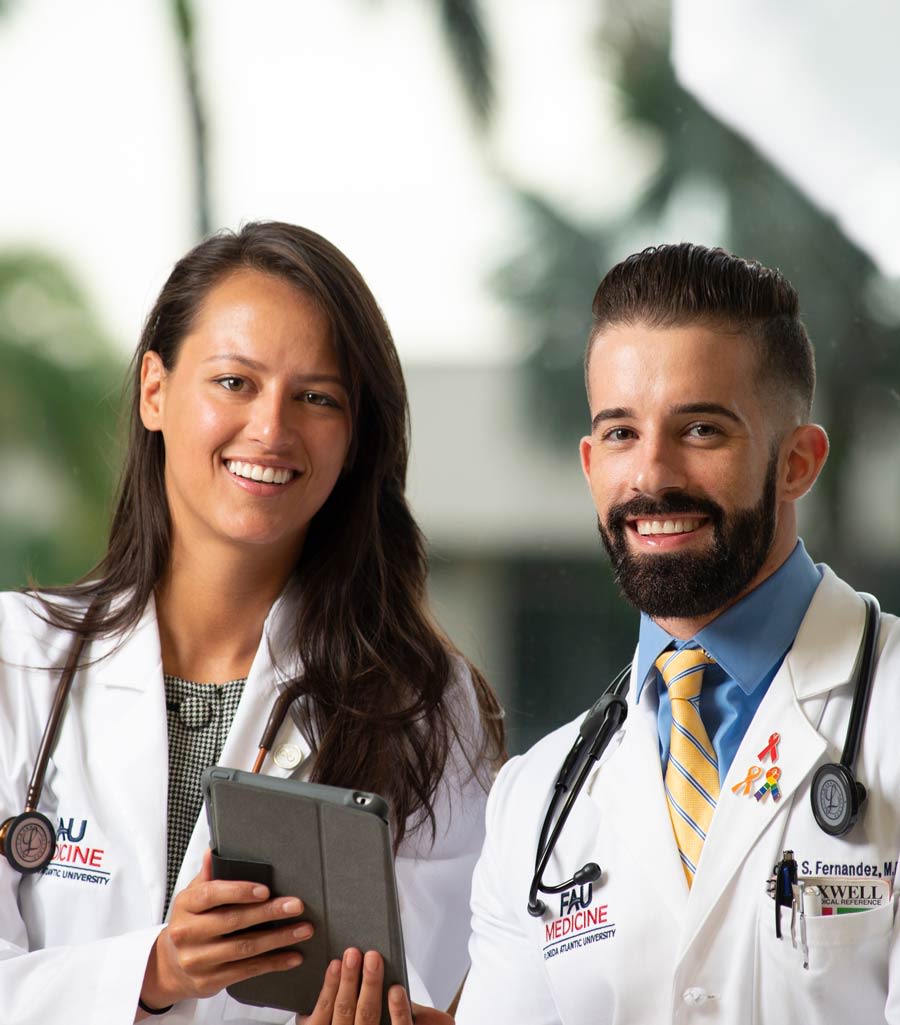
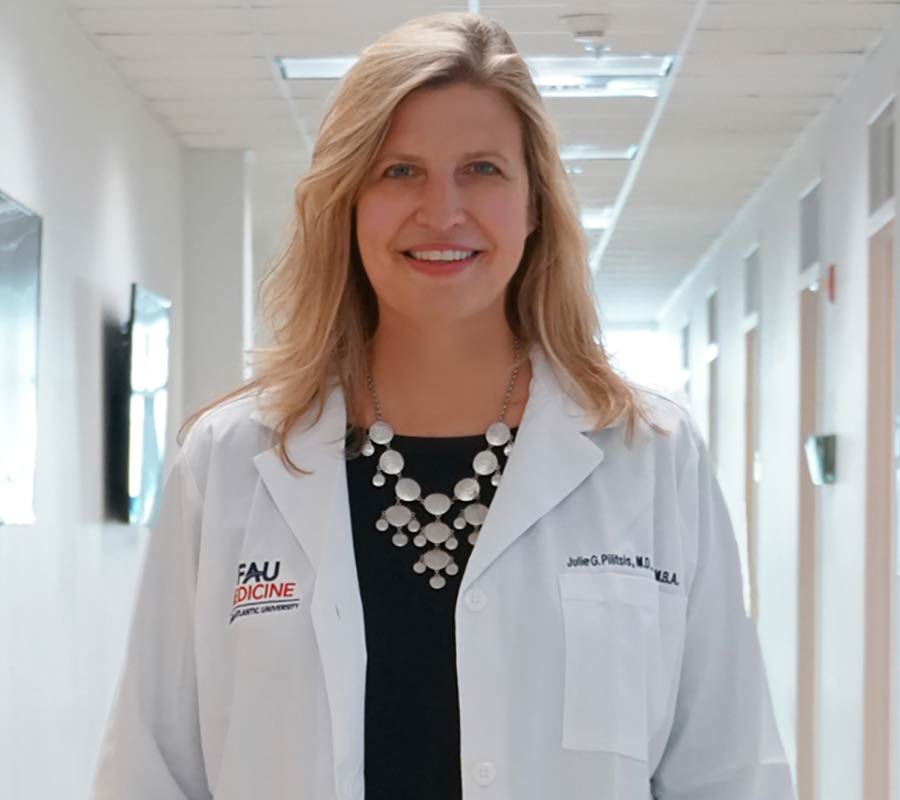
Julie G. Pilitsis, M.D., Ph.D.
Julie G. Pilitsis, M.D., Ph.D.
The FAU Health Network
The FAU Health Network demonstrates the entire university’s commitment to improving health care for nearly 4 million Floridians in four coastal counties, including Palm Beach County where Florida Atlantic’s main campus is located. Formed in June 2022, the network consists of all 10 of Florida Atlantic’s colleges — from medicine and nursing to business and engineering — and three of the university’s major focal areas: human health and disease intervention, neuroscience and sensing and smart systems.
“When you think about health, it’s not just talking about doctors, nurses and social workers,” Pilitsis said. “There are many who take part in the day-to-day clinical work and the advances — so all of Florida Atlantic is involved.”
In less than a year, the network has grown to more than 50 partners. They include major regional health systems, business and economic development boards, the Health Care District of Palm Beach County, and the renowned Caridad Center, the largest free health clinic in Florida. Three postsecondary institutions have signed on: Broward College, Palm Beach Atlantic University and Palm Beach State College.
At its most basic level, Pilitsis said the network will allow participants to collaborate, coordinate and share best practices. But the network has the potential to do so much more.
It will help Florida Atlantic produce more doctors, nurses and social workers by adding more clinical settings where future health care professionals can be trained. It also provides more flexibility to place students in settings that are the best fit for both them and network partners.
The university hopes to use the network to expand enrollments so it can increase the number of annual graduates to more than 300 in nursing, 104 from the medical college and 200 from its social work program. Pilitsis also envisions expanding medical resident training programs into new specialties.
The network’s large patient base opens up possibilities for accelerating clinical research. If Florida Atlantic can run larger clinical trials, it can bring in more research funding. That in turn will attract more researchers and produce new medical advances that will benefit residents throughout the region.
By graduating more medical professionals and increasing research, the FAU Health Network can expand access to medical care throughout the region in ways that can cure diseases and save lives. A network that’s of the community and for the community is crucial, Pilitsis said.
“Academic medicine goes hand in hand with taking care of people who don’t have resources,” Pilitsis said. “Florida Atlantic University was founded on the principle that everyone should be able to get a college education. It’s central to our mission that everyone should have access to some fundamental things — like education and health care.”
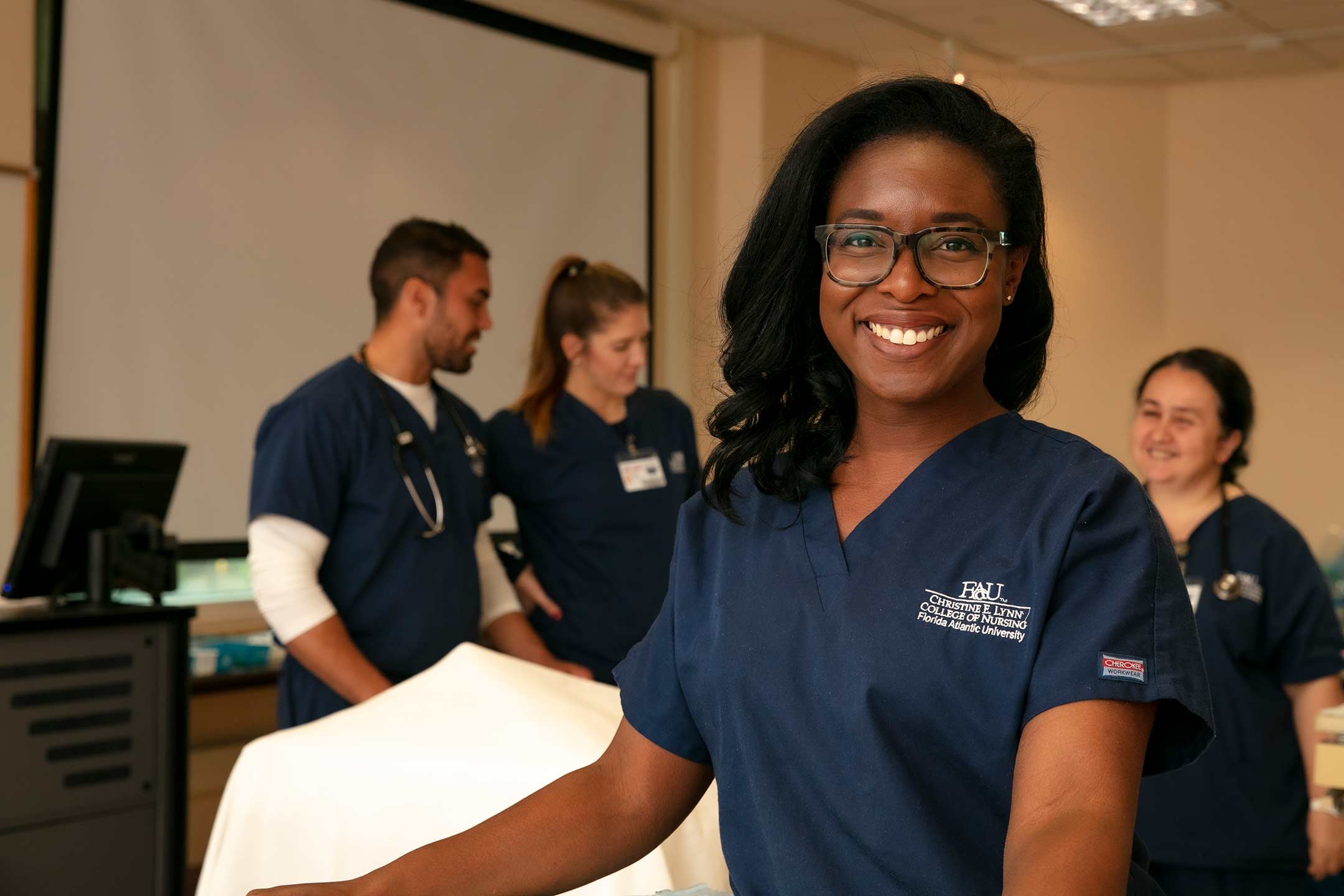
The FAU/NCHA Community Health Center
Florida Atlantic’s Christine E. Lynn College of Nursing doesn’t just educate the next generation of registered nurses and nurse practitioners. It also offers primary care in West Palm Beach.
The nursing school opened the Florida Atlantic University/Northwest Community Health Alliance Community Health Center in an underserved section of West Palm Beach in 2014 to provide a comprehensive array of primary and preventative care and mental health services. At the urging of a local community organization, the nursing school opened a second clinic in 2020. Together, these health centers served more than 4,550 patients during the 2021-22 academic year.
“We have a holistic approach to the care we provide, with primary care integrated with mental health care and a team of providers who are dedicated to serving vulnerable populations,” said Safiya George, Ph.D., the Holli Rockwell Trubinsky Eminent Dean in Nursing and professor in the Christine E. Lynn College of Nursing. “Patients feel respected and valued regardless of their health insurance status.”
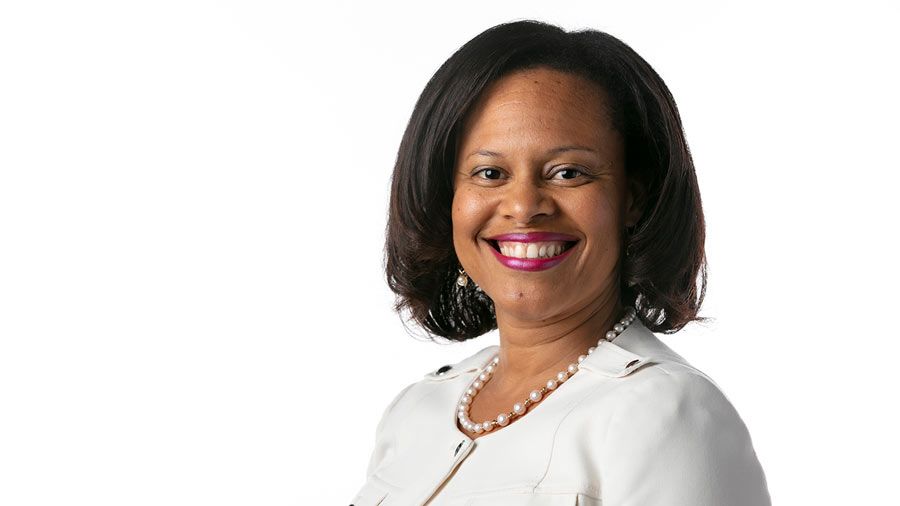
Safiya George, Ph.D.
Safiya George, Ph.D.
Several things differentiate the FAU/NCHA Community Health Center.
The community health center is nurse-run. Most of the 13-person staff are nurses and nurse practitioners, and nursing college faculty members regularly volunteer to work there. The center also serves as a clinical training site for Florida Atlantic undergraduate and graduate nursing students — including the nursing college’s new Health Equity Nursing Scholars, whose focus is on primary and behavioral health care in underserved communities.
It’s unique in Florida. In 2021, it became the state’s only university-run health center to be named a Federally Qualified Health Center Look-Alike by the U.S. Health Resources and Services Administration. This designation qualifies the center for higher Medicare and Medicaid reimbursements. If the center can gain full FQHC status — which George said could happen soon — it will be eligible for federal grants so it can provide more services to more patients.
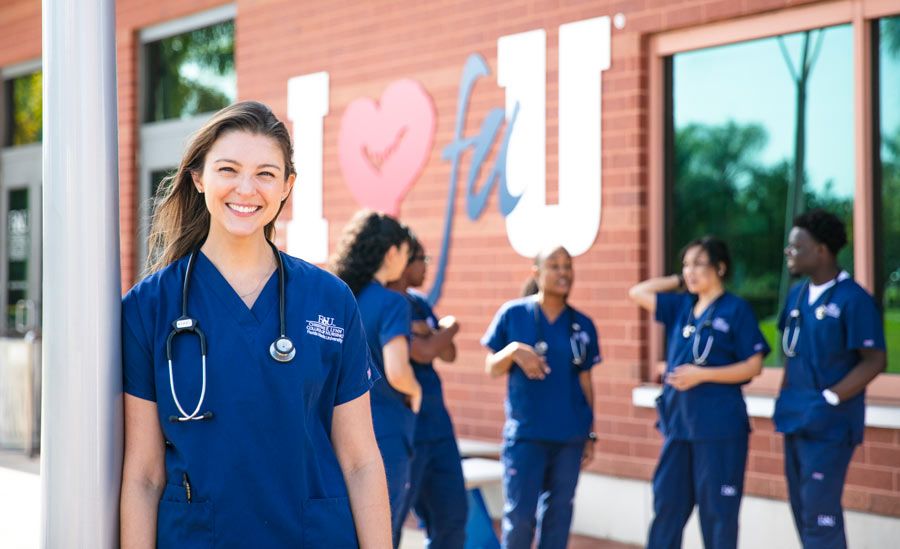
The center takes its services to the community. Last fall, the nursing college received a $3.9 million HRSA grant to create a nurse-led mobile health unit to work jointly with the community health center to care for patients in two Palm Beach County communities who can’t get to the clinic.
Here’s one more differentiator: The center uses caring science to guide its work. George said Florida Atlantic prepares nurses and nurse practitioners who listen intently and with compassion to their patients and design a plan of care that combines evidence-based practices with what matters most to each patient. This approach is on display each day at the FAU/NCHA Community Health Center.
“We describe it as the dance of caring persons. It says that each person matters and has a unique role in the dance we all do together to achieve the best outcome for our students and our patients,” George said. “At Florida Atlantic, the difference is palpable.”
This custom content is sponsored by Florida Atlantic University and developed by Inside Higher Ed's sponsored content team. The editorial staff of Inside Higher Ed had no role in its creation.


